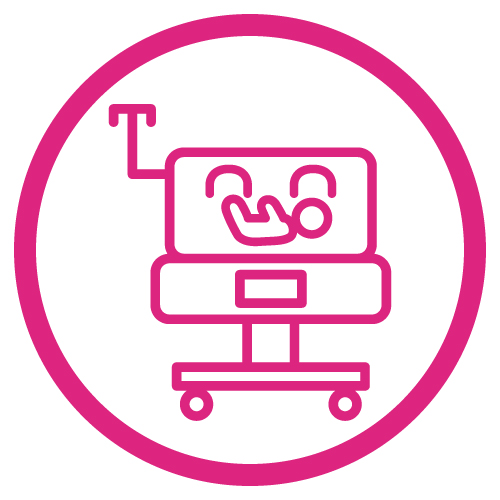 IBCLC Detailed Content Outline: Pathology / Infant Focused CERPs - Section III A
IBCLC Detailed Content Outline: Pathology / Infant Focused CERPs - Section III A
Access CERPs on Pathology / Infant for the IBCLC Detailed Content Outline recertification requirements. On-demand viewing of the latest Pathology / Infant focused IBCLC CERPs at your own pace.
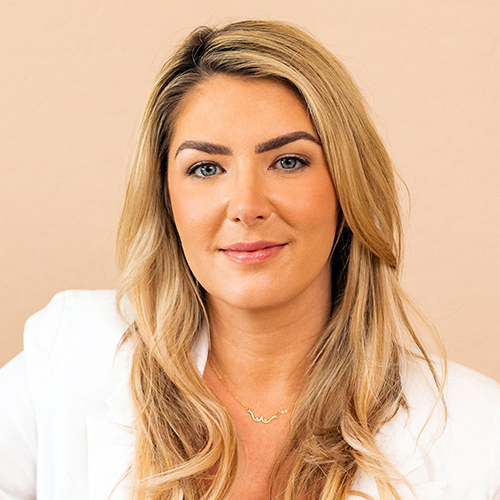

Jacqueline Kincer is the founder of Holistic Lactation where she runs a busy practice, manufacturers herbal supplements for lactation, and supports breastfeeding families worldwide. She's also the host of the podcast Breastfeeding Talk: Milk. Mindset. Motherhood. and creator of the online breastfeeding community, The Nurture Collective. Jacqueline's passion has been to create functional breastfeeding outcomes and expand access to lactation knowledge across the globe.
Topic: Inside the Infant Mouth: Oral Assessment & Function - [View Abstract]
Topic: Tongue Tied Untied: Creating Functional Breastfeeding Outcomes - [View Abstract]
In this presentation, Jacqueline demonstrates how tongue tie affects proper breastfeeding, specifically the mechanics of breastfeeding such as oral grasp, tongue extension, pressure generation, and more. You'll learn how to know which problems are issues that can be corrected with targeted oral exercises, or if bodywork is needed instead. We will also cover the timeline of habilitation in the weeks following frenectomy.
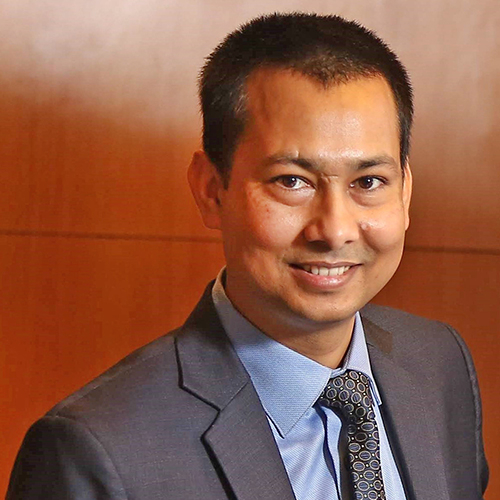
Tongue-Tie and the NICU: A Neonatologist Perspective

Dr. Ankur Bio Update - Dr. Kumar Ankur, MD, DNB is working as an Associate Director & Head of the Department of Neonatology at BLK MAX Super Speciality Hospital Delhi, India. He has been working in the field of neonatology with private and non-goverment organisations for improving neonatal healthcare in the country. He is the national faculty and trainer for FBNC (Facility based neonatal care), Neonatal Resuscitation, Kangarroo Mother Care (KMC) and the national assessor for Neonatology Fellowship accreditation programme of India. He has been invited as an expert speaker, faculty, chairpersons for various national and state level conferences and workshops. He has many publications in national & international journal and authored many chapters, guidelines published by Indian Academy of Pediatrics & National Neonatology of Forum Delhi & India. He is also the co-editor of Handbook of Neonatal Clinical Practices. He is also running training program in neonatal Fellowship for postgraduate students & neonatal nurses. Currently he is also the Secretary of prestigious National Neonatology Forum, Delhi. National Neonatology Forum (NNF) is a strong and large body of more than 8000 neonatologists across India and abroad. NNF has been actively involved in advocacy, policy making, research and ensuring quality health care to newborn for the last 4 decades. He had been past Secretary (2014) & President (2018) of Indian Academy of Pediatrics (IAP), Central Delhi Branch.
Topic: Tongue-Tie and the NICU: A Neonatologist Perspective - [View Abstract]
Tongue Tie is an interesting clinical subject with extreme variability in understanding among lactation consultants, neonatologists, pediatricians, speech therapists, pediatric surgeons, and dental/oral surgeons. There is still no consensus on diagnosis and mode of treatment. However, in recent years there seems to increase reliance on cutting the tie despite the lack of robust evidence. As clinicians, we should always give an unbiased approach towards any neonate's feeding-related problem. Holistic systems like simple bodywork and prolonged skin-to-skin contact, and family involvement can often resolve infant feeding issues. Family-centered care (FCC), based on collaborative participation of the family and a team of health care providers, is found to increase infants' well-being in neonatal critical care units. Our own postgraduate student did her dissertation To Determine the Prevalence of Lingual Frenulum in Infants ≥ 1800 grams of Birth Weight Affecting Breastfeeding (Submitted for Publication). We shall be sharing the Indian data and providing more information about the prevalence of tongue-tie in the NICU, how to distinguish between tongue-tie and other common feeding issues in neonates and the importance of holistic care.
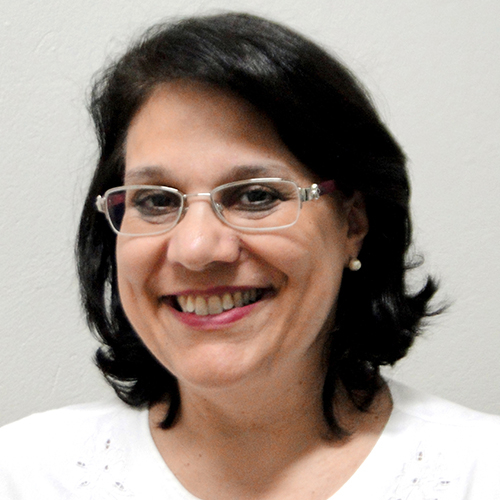
Tongue-tie Assessment Using the Lingual Frenulum Protocol for Infants

SALP expert in Orofacial Myology. PhD in Science USP - University of São Paulo. Chief of lingual frenulum evaluation sector at Santa Therezinha Hospital/ Brazil
Tongue movements are essential for milk extraction during breastfeeding. It is therefore very important that professionals are able to reliably identify anatomical variations in the lingual frenulum that may impact infant feeding. Learn more about how to use the Lingual Frenulum Assessment Protocol for Infants. This tool allows assessment of changes in the lingual frenulum and limitation of tongue movements, which can compromise the functions of sucking, swallowing, chewing, breathing and speaking.
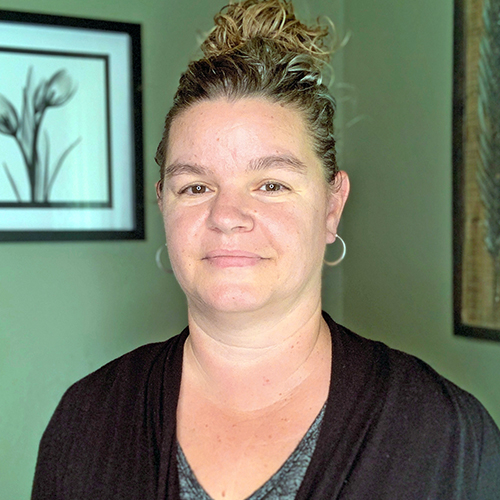
Tongue-Tied and Troubled: A Breastfeeding Journey at Risk

Christine Staricka is a Registered, International Board-Certified Lactation Consultant and trained childbirth educator. As the host of The Lactation Training Lab Podcast, her current role focuses on training and coaching current and aspiring lactation care providers. Christine created and developed The First 100 Hours© concept, an early lactation framework designed to support lactation care providers with the knowledge and mindset they need to help families optimize early lactation. Christine worked as a hospital-based IBCLC for 10 years and has over 20 years experience providing clinical lactation care and support. She provides clinical lactation care to families at Baby Café Bakersfield and serves as its Director. Christine recently completed 6 years of service on the Board of the United States Lactation Consultant Association (USLCA.) She holds a Bachelor's Degree from the University of Phoenix. She has been married for 27 years, lives in California, and is the proud mother of 3 amazing daughters.
Topic: Tongue-Tied and Troubled: A Breastfeeding Journey at Risk - [View Abstract]
Topic: Your Responsibility to the WHO Code: Evaluating Real-World Scenarios for Compliance - [View Abstract]
A suspected or diagnosed tongue-tie can throw a breastfeeding journey into immediate peril, with concerns over the baby's well-being most often discussed and debated. However, without an appropriate and intentional strategy for supporting the mother, the breastfeeding journey risks meeting an untimely, unplanned, and/or unsatisfactory end. The mental and emotional toll such a complex lactation situation can take on parents is wide-ranging in its effects, and it is critical to provide personalized and comprehensive counseling to restore a sense of empowerment and control to the mother as she makes continual decisions on how and whether to proceed with lactation and breastfeeding. Additionally, it is vital that indications of postpartum mood disorders are recognized and addressed as early as they appear. Lactation care providers can benefit from a clear framework for their fundamental responsibility to safeguard both the mother and child in a breastfeeding dyad. In this presentation we will explore ideas and themes that can guide the lactation care provider to ask the right questions at the right times in the specific context of tongue-tie so that they can offer effective counseling and care.
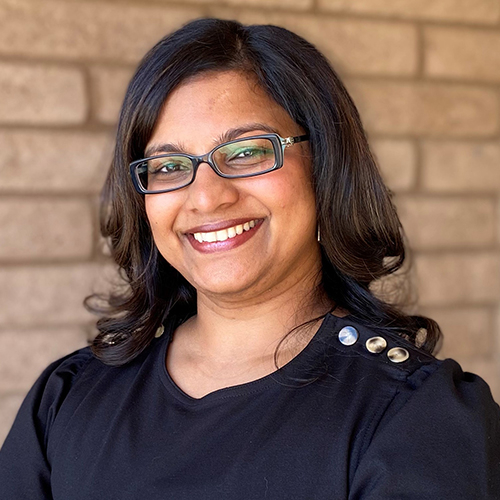
Trauma Informed and Family Centered Care! Keeping the Family Unit at the Center of a Tongue-Tie Treatment Model

Ramya Kumar is an ASHA certified Speech Language Pathologist specializing in infant and pediatric feeding disorders while practicing in a Level 3 NICU and outpatient settings in Phoenix, AZ. She is a Board Certified Specialist in Swallowing & Swallowing Disorders, Certified Neonatal Therapist, International Board Certified Lactation Consultant, Neonatal Touch & Massage Certified Therapist & has completed the Trauma Informed Professional Certificate. Ramya is an internationally sought out speaker & clinical mentor on the topic of neuroprotective care in the NICU, Pediatric Feeding Disorders and Tethered Oral Tissues. Ramya is passionate about helping families create mealtime success through a whole-body lens. More recently, Ramya has been serving as a NICU Developmental Coordinator championing changes in unit culture, system-wide policy development and supporting transition of NICU families to community based programs. She has also co-founded Arizona NICU Follow-Up Specialists, a community resource supporting NICU grads and their families as they transition from hospital to home.
Topic: Trauma Informed and Family Centered Care! Keeping the Family Unit at the Center of a Tongue-Tie Treatment Model - [View Abstract]
Research repeatedly tells us that families experience significant levels of stress, fear and fatigue when navigating challenges with feeding their infant. These experiences have a significant impact on their well-being, negatively affecting both physical and emotional health. Compound this with the need to navigate information and emotions that surround surgical intervention like tongue tie releases and the subsequent impact on their child’s comfort and pain as well as fear about success after a release is completed. Parental involvement in the care of their infant’s feeding plan is essential for protecting their identity roles, decreasing risk of depression and anxiety, and increasing parent confidence and competence in caring for their child (Obeidat,2009). Health professionals have a crucial role to play in understanding and implementing a trauma informed, family centered care model when planning the timing of a tongue tie release and supporting the family through the journey. This session will highlight the four core concepts of family centered care as well as tenets of trauma informed care and ways to utilize this during the various stages of a tongue tie evaluation. We will also cover strategies to minimize trauma recurrence and empowering parents and caregivers throughout the process.

Trauma Informed Care in Clinical Infant Oral Assessment: Understanding Body Autonomy

Effath Yasmin is India's leading Biodynamic Craniosacral Therapist, an award winning International Board Certified Lactation Consultant & a Documentary Film Maker. She is also an International Speaker, an Author & a Bach Flower Practitioner.
Her special interests lie in Infant Oral, Sucking & Airway Dysfunction, Tongue Tie, Birth Trauma, Craniofacial Development and a range of chronic physical and mental dis-eases & quantum energy phenomenon. She applies these sciences into Life Coaching, Inner Child Healing and Parenting. Her approach stems from fundamental truth of human organism is complete and self-regulatory and treatment & counselling approach is by deep listening & true empathy to mind body and spirit rather than by intervention.
She currently sits on several national & international professional boards.
She has spear-headed & dedicated her life to many projects with a central mission of advocacy, education and awareness for integrative multidisciplinary wellness approach worldwide. Her work has been published in the International Journals & a textbook and she writes extensively on print and digital media on the subjects of Breastfeeding, Tongue Tie, Parenting & Health related subjects.
Her international award winning film 'Untying Breastfeeding' exposes the glaring unseen obstacles to Birth & Breastfeeding & early parenting that can help restore motherhood and has been widely celebrated over 1500 Cities worldwide. She is currently pursuing her Ph.D. in Metaphysical Sciences.
Topic: Rethinking Surgical Tools - Infant Frenotomy & Pain - [View Abstract]
Topic: Trauma Informed Care in Clinical Infant Oral Assessment: Understanding Body Autonomy - [View Abstract]
The Mouth, nasal passages, ears, eyes, digestive & reproductive organ systems are all orifices or openings in our body and define as our most intimate parts of our body and hold the precincts of Body Autonomy. Since a physical examination of various kinds are a requirement for assessment & evaluation in clinical care, it provides us with an opportunity to establish trust and reinforce a safe encounter between a care provider and infant patient. Anyone especially an infant going through a physical examination maybe at risk to be experiencing shame, vulnerability & trauma which can have lifelong impacts such as triggers for past memories, anxiety, distress or discomfort or even PTSD. Immediately after the trauma, this can lead to oral aversions symptoms complete with refusal to latch & breastfeed, turning away from food, gagging. coughing & choking. Oral aversion situations pose an extremely stressful situation for all — the infant and the family and the care providers. Therefore, a respectable trauma-informed approach to the physical oral examination during the assessment, evaluation and treatment and rehabilitation of oral restrictions or ankylofrenulae (tongue tie) is essential and important. This will involve using gentle communication skills both verbal and nonverbal language and maneuvers to communicate respect of body autonomy and restore a sense of safety, trust & connection.
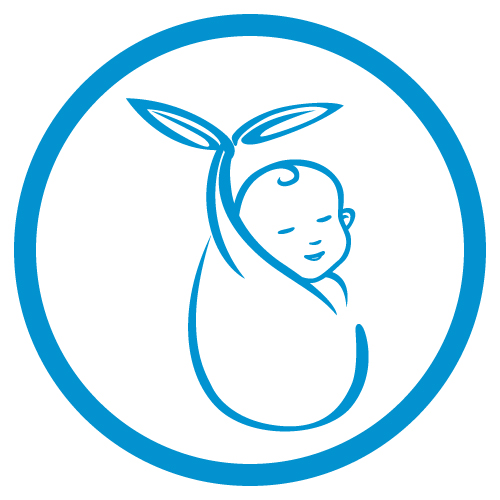
View Details / Enroll
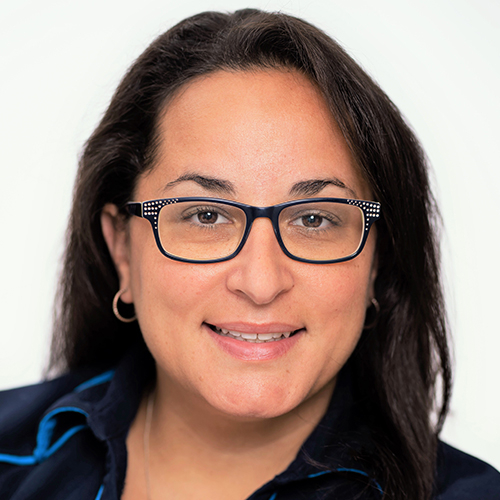

Bridget Liriano is a registered nurse with over 15 years of experience in pediatrics and holds a Master of Nursing degree from the University of Toronto in Ontario, Canada. As the Quality Leader and a Transport Clinician for the Acute Care Transport Service (ACTS) Team at Sick Kids, Bridget is committed to providing expert medical care in the stabilization and safe transport of acutely ill neonates and children. She is a strong advocate for quality and safety, which is demonstrated through her involvement in clinical research, team-based projects and quality improvement initiatives. She has formerly covered the role of Interprofessional Education Specialist, working in collaboration with the leadership team to support the educational needs of her ACTS colleagues. Bridget has a passion for clinical education and simulation-based training, with a focus on interprofessional collaboration, peer mentorship, clinical debrief and neonatal resuscitation.
This session will highlight important aspects of resuscitation and stabilization of the neonate with an evidence based approach to clinical practice. Through case based examples, the audience will explore how effective communication, interprofessional collaboration and reference to clinical care pathways can promote patient safety and quality of care for the most vulnerable neonatal patients. Learners will gain a better understanding of the triage process and the preparation of patients for acute care transport. The session will conclude with a review of the ‘lessons learned’ from transport case presentations and their outcomes.
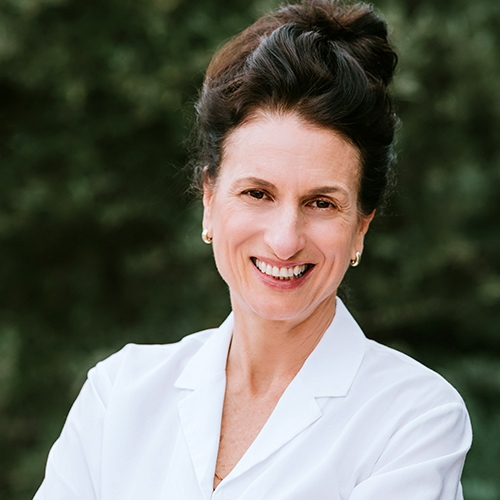

Dr. Gina Weissman began her career as a dentist, receiving her training at The Hebrew University Hadassah Medical School, Jerusalem. She is also a RN nurse and has been working as an IBCLC, Certified Lactation Consultant, since 1999. She teaches courses in human lactation for both medical professionals and future lactation consultants, mentoring them in preparation for the international exam of the IBCLC. Dr. Weissman councils mothers and releases tongue ties at her private breastfeeding clinic, HalavM. She is an expert in teaching mothers Instinctive Breastfeeding and the author of Mother's Milk, a Video Guide to Breastfeeding (Hebrew/Arabic/English).Dr. Weissman is an international lecturer and the president of the Israeli Association of Certified Lactation Consultants.She lives in Israel with her husband Amir and four sons.
Topic: Understanding the Complexities of Tongue Tie: 2020 Updates - [View Abstract]
Background
As far as anterior tongue tie is concerned, there is a growing, vast body of knowledge that has been validated. As for posterior tongue tie, the scientific evidence is lacking, and the assessment tools are not uniform among practitioners.
Medical diagnoses are not part of the scope of practice of Lactation Consultants. Hence, there is a lot of confusion among professionals (both Drs and Lactation Consultants), resulting in over diagnosis and over treatment on the one hand, and under treatment on the other.
Purpose
• To present a unique perspective of an experienced Lactation Consultant who is also a dentist, experienced in diagnosing and treating various types of tongue ties
• To share a conservative clinical thinking process
• To examine the effects of frenotomy on breastfeeding and nipple pain
• To compare the effect of frenotomy on anterior verses posterior tongue ties.
Approach
The discussion will focus on the clinical dilemmas regarding releasing posterior tongue ties and their implications for breastfeeding.
Clinical cases of babies with posterior tongue ties will be shown to demonstrate how exclusive breastfeeding can be achieved in clinical cases with posterior tongue ties that were not released. Cases of anterior and posterior tongue ties that had been released although breastfeeding was going well will also be shown.
Conclusions
Frenotomy is a predictable procedure for anterior tongue tie. However with posterior tongue ties, the outcome of nipple pain and breastfeeding latch are influenced also by different factors.
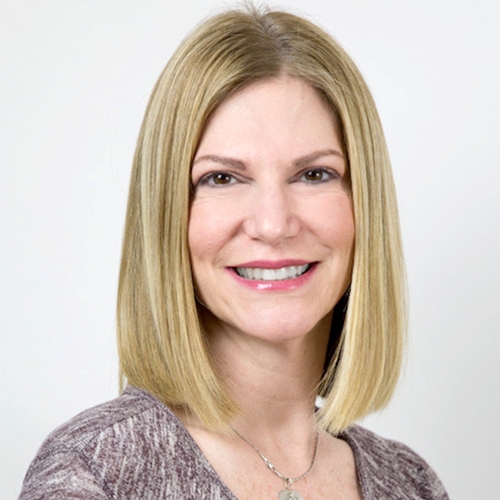
Understanding the Variations of Active Wound Management and Neuromuscular Re-Education

Robyn Merkel-Walsh, M.A., CCC-SLP/COM® is a Licensed Speech Pathologist with over 25 years of experience. She is employed full time by the Ridgefield Board of Education and runs a private practice in Ridgefield, NJ. She is also an author, lecturer, and consultant for TalkTools® . Robyn specializes in Oral-Placement, feeding, and orofacial myofunctional disorders in the pediatric population. Her publications include, SMILE (Systematic Intervention for Lingual Elevation), Art Talk, Handy Handouts, OPT-S Kit, and she co-authored Sensory Stix, A Sensory-Motor Approach to Feeding, Functional Assessment and Remediation of Tethered Oral Tissues and Oral Placement Therapy Goals for Speech Clarity. She has also written several articles for the TalkTools® website, The ASHA Leader, and Advance Magazine for Speech Pathologists. She has been published five consecutive years at the annual convention of the American Speech-Language and Hearing Association. Robyn received both her undergraduate and graduate degrees from Montclair State University, where she was later invited to be an adjunct/clinical supervisor. She has also taught classes and/or as a clinical supervisor for: Bergen Community College, Seton Hall University and Malloy College. She is a member of American Speech-Language and Hearing Association, American Academy of Private Practice in Speech Pathology and Audiology, New Jersey Education Association, International Association of Orofacial Myology, Oral Motor Institute, Ankyloglossia Bodyworkers , International Consortium of Ankylofrenula Professionals and The Bergen County Apraxia Association. She served a term on the New Jersey Speech and Hearing Association Board of Directors and was the private practice co-chair. She is also the Board Chair of the Oral Motor Institute and the Associate Editor of the International Journal of Orofacial Myology.
There is a better understanding within the fields of medicine and dentistry, lactation, speech-pathology, occupational and physical therapies that functional assessment and treatment is critical for optimal lingual, buccal and labial frena releases. Semantics and terminology however are often confused regarding a treatment protocol. Post-op TOTs care has two phases: 1) Active Wound Management to maintain the integrity of the wound and avoid scarring and re-attachment and 2) Neuromuscular Re-Education to address the underlying muscle and motor- based deficits that are secondary to the oral restriction(s). Both stages of treatment must be considered. This course will outline the two stages, review national scopes of practice for various professionals involved in TOTs care and discuss guidelines for referrals to team members. Specific techniques will be reviewed and categorized as to which stage of treatment is being addressed, which sometimes may overlap.
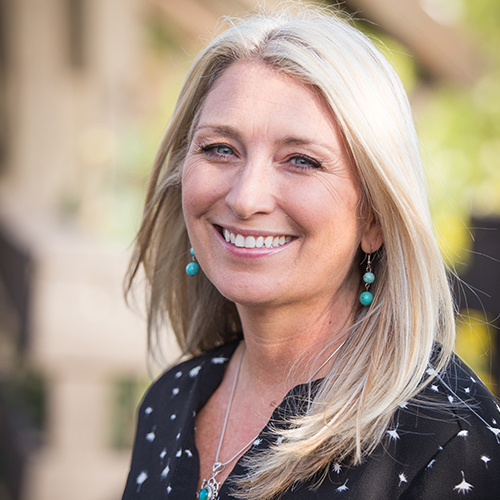

Laurel Wilson, IBCLC, CLE, CCCE, CLD is a TEDx and international speaker, author, pregnancy and lactation expert, and consultant. She served as the Executive Director of Lactation Programs for CAPPA, the Childbirth and Postpartum Professional Association for 16 years and now is on the Senior Advisor Board. She served on the Board of Directors for the United States Breastfeeding Committee from 2016-2019. She also is on the Advisory Board for InJoy Health. She owns MotherJourney, focusing on training perinatal professionals on integrative and holistic information regarding pregnancy, childbirth, and breastfeeding. She has her degree in Maternal Child Health: Lactation Consulting and is an internationally board certified lactation consultant. As the co-author of two books, The Attachment Pregnancy and The Greatest Pregnancy Ever, original Editor of the CAPPA Lactation Educator Manual, and contributing author to Round the Circle: Doulas Talk About Themselves, she loves to blend today’s recent scientific findings with the mind/body/spirit wisdom. Laurel has been joyfully married to her husband for nearly three decades and has two wonderful grown sons, whose difficult births led her on a path towards helping emerging families create positive experiences. She believes that the journey into parenthood is a life-changing rite of passage that should be deeply honored and celebrated.
Topic: Epigenetics and Breastfeeding: The Potential Longterm Impact of Breastmilk - [View Abstract]
Topic: Hold the Phone! Diet Does Matter During Breastfeeding: Implication of Diet on Fatty Acid Composition and Other Nutrients - [View Abstract]
Topic: Postpartum Mood Disorders, Breastfeeding and the Epigenetic Links from Past Into Future - [View Abstract]
Topic: Talk To Me: How Breastmilk Acts as a Communication and Gene Expression Tool Between Mother and Child - [View Abstract]
Topic: The Milk Sharing Conundrum - The Grey Area Between Scope and Need - [View Abstract]
Topic: The Placenta and Breastmilk-Unraveling the Mysterious World of the Intelligent Organs that Protect our Babies - [View Abstract]
Topic: Understanding Zika and Lyme and Breastfeeding - [View Abstract]
Topic: Unraveling the Mysteries of Human Milk: The Fascinating Role of Neohormones, Epigenetics, the Microbiome and More! - [View Abstract]
With the recent spread of the virus, Zika and the bacterial infection, Lyme Disease, many pregnant and breastfeeding families worry about the potential impact on their babies. There is a great deal of inaccurate information on the internet regarding these diseases that many parents encounter. Having good resources and current information on these emerging diseases is imperative for new families. This presentation will address transmission of the diseases, risks to babies prenatally and during breastfeeding, and precautions for pregnant and breastfeeding mothers to take.

View Details / Enroll






